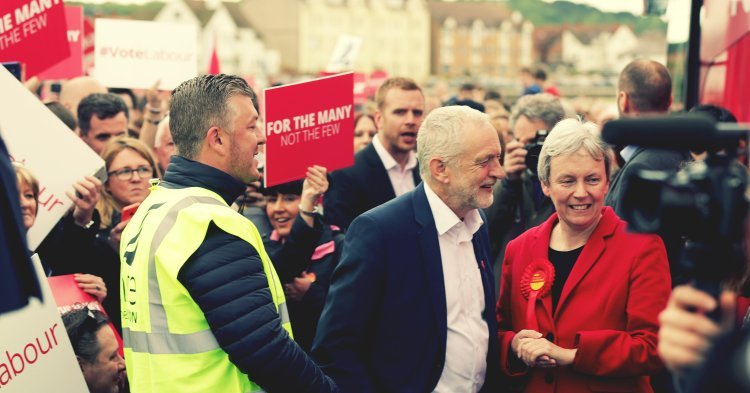“They like the local Lib Dem councillors,” I reported, “but they want to leave the EU. They’re voting Conservative.”
Angie showed no surprise, nodding her thanks without looking at me and logging the information in the app with a series of efficient taps. The app draws on a database constructed from previous door-to-door canvassing in which voting intention and sometimes also motive were logged. This allows the campaign team to formulate their strategy effectively and not waste precious time talking to the persuaded or the unpersuadable. Possible Lib Dems, maybes, non-voters, voters of what in this constituency are minority parties, and first-time voters are prime targets. Sure-fire Lib Dem and solid Conservative voters are left well alone.
“Take number three on this street, Maddie,” Angie told me. “A Mr and Mrs Booth. She’s a Green voter, he’s a don’t know. How did you get on, Max?”
Max is the parliamentary candidate for the Lib Dems in Cheltenham. I am not a member of the Lib Dems, nor do I live in Cheltenham, and if elected, Max will never be my MP. Then again, I am not really here to campaign for a party, but against one.
How should Remainers vote?
The British voting system of first past the post dictates that the candidate with the most votes in a constituency is selected, irrespective of whether they have a majority. The party of that candidate is said to have won the seat, and votes for all other parties in that area are then effectively ignored. Without proportional representation, there is an incentive to vote tactically, knowing that only votes for a candidate who is likely to win the seat will “count”.
Voting tactically is being heavily encouraged for Remainers in this election, who, by voting for the pro-European candidate likely to win even if they are not their first choice, are trying to engineer a parliament which could call a people’s vote. I and many others who I met canvassing this week are going one step further by campaigning tactically too. Where my parents live, and where I am allowed to cast my vote, is a safe Tory seat, whereas Cheltenham, a remain City where the Lib Dems finished not far behind the Conservatives at the last general election in 2017, has a real chance of turning yellow. Here, and in other marginal seats like Worcester, where the Labour Party might also take the seat from the Conservatives, a few more hands on deck might swing it.
Who comes out to campaign for Labour?
The reasons for which people have come to campaign for the Labour Party in Worcester are as varied as they are fascinating. “I have been a socialist all my life” - Nathan, 27. “There are more and more children in poverty while the rich get richer” - Amanda, 70. “I work in a high school and we are chronically underfunded” - Sue, 41. “I work full-time and it’s still a struggle. I couldn’t afford to sit on the sidelines any longer” - Duncan, 43.
They asked me why I’m here, and why I’ve come from where I live in Germany to canvass for a general election for the first time. There are many reasons, but the main one is easy to explain. “I’m against Brexit. Oh, and I hate the Tories,” I added, getting a rueful laugh. Dislike of the increasingly hard-right Conservative Party has united activists up and down the country despite our differences in age, priorities, and even political orientation. Back at Labour’s Worcester HQ, Green voters can be found addressing envelopes, accepting that their candidate has no chance, willing to support the Labour candidate instead on this crucial occasion.
Door-to-Door
The reactions on the doorstep were mixed in both cities where I campaigned. Leader of the Labour Party Jeremy Corbyn might be popular among young people but in my brief experience of canvassing he was the most frequently cited reason why former Labour voters are turning away from the party. They perceive him as too radically left wing, a poor leader and too indecisive over Brexit.
In Worcester I fear that the Labour Party may haemorrhage Leave voters, to whom the soundbite “Get Brexit Done” has been so thoroughly flogged as to appear a tempting quick-fix rather than an impossible and damaging fantasy. Worse, while neither Boris Johnson nor Jeremy Corbyn are popular amongst those I talked to, they are frequently seen as much of a muchness, with their arguments, spats, slogans and promises seen as an equally untrustworthy jumble.
I struggled to get my message across that, while we are indeed desperately short of good leaders, one of the two is, to put it crudely, essentially a good person despite his many faults; the other a racist, sexist, homophobic liar only interested in himself.
This election is probably as close to a second referendum as we will get. Yet it is also, in no small part due to Boris Johnson, about much more than Brexit. It is about distinguishing truth from lies, tolerance from prejudice, justice from injustice, and nation from nationalism. The result will define the course of the country for generations.
As I stepped on to the plane to return to Germany, I spared a grateful thought for all the wonderful activists I met this week, and also those up and down the country who I didn’t meet; the many thousands of people from all walks of life fighting for a better future for the UK than the closed, small-minded one that the Conservatives offer us.
As I stepped on to the plane, I wondered, not for the first time, what will what have happened to my country next time I set foot there. Although the governing party will likely be constrained by a strong and angry opposition, I still predict a Conservative majority.
As I stepped on to the plane, I hoped I was wrong.
#VoteTactically


Follow the comments: |
|
